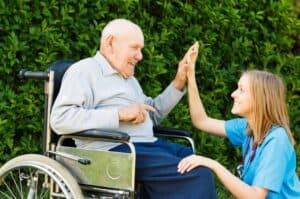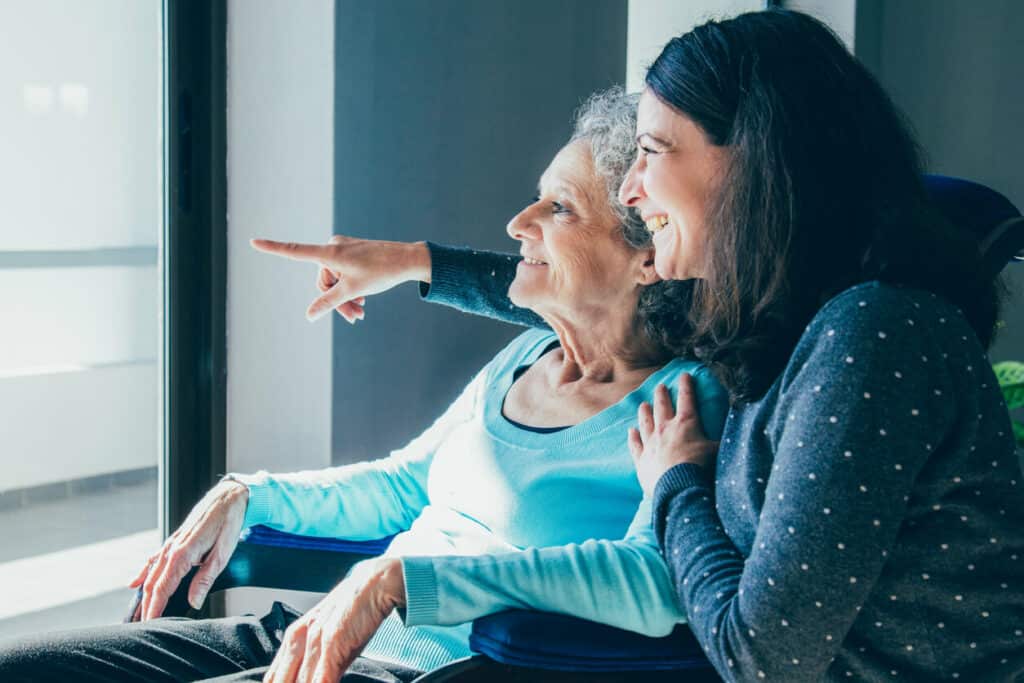
8 Memory Care Requirements That You Need to Consider Before Committing Your Loved One
Have you noticed a decline in cognitive and memory abilities as your loved one ages? In some individuals, this decline can be more pronounced, resulting

It’s neither the doctor’s appointment nor their senior loved one’s schedule for taking meds that family caregivers often forget and overlook — it’s their own health. Caregiving is a noble and rewarding job, but it’s also taxing. Perhaps one of the reasons is that, unlike other types of occupation, caregiving is more of a calling.
As it is a calling, a caregiver must invest emotionally in the person they care for, making caregiving a more psychologically stressful role. Did you know that elderly spousal caregivers have a 63% higher mortality rate due to caregiver stress? Despite this, many people still underestimate the impact of caregiving-related stress on health.
Self-care should be first on your priority list if you’re a family caregiver. Learn more about caregiver stress, how to spot burnout, plus practical self care tips for caregivers.

Caregiver stress manifests as physical, emotional, and psychological exhaustion. Here are the three common signs that you are stressed as a caregiver.
If your loved one can no longer run the household, you, the primary family caregiver, will need to take over some of the household tasks, particularly ones that your loved one can’t handle, such as cooking and cleaning. It can be physically taxing to juggle several responsibilities every day. Accumulated caregiver stress is terrible for your health.
Some physical indications of caregiver stress are:

Caregiving can make you feel emotionally drained. One key sign of emotional stress is when you feel ambivalence, meaning you have contradictory feelings about caregiving. You want to care for your senior loved one, but at the same time, you also wish you don’t have to be there to look after them. The opposing feelings eat away at your emotional battery and make you feel fatigued.
Other signs of emotional caregiver stress include:

Chronic stress can also elevate the risk of mental health problems. Caregivers who don’t look after their well-being experience a range of psychological issues, such as:
Caregiver burnout is a serious condition as it can affect the caregiver’s relationships, home, and work obligations, and health. You’re burned out if you’re experiencing mental, emotional, and physical exhaustion. You need to seek help before it affects your life negatively.

Caregiver stress is just like workplace stress. It’s inevitable to have as it’s part of the job, but it’s also manageable, depending on how to handle it.
To better understand burnout, let’s look at how and when stress could snowball into caregiver burnout.
Caregiver stress is your first cue that you’re tired and need help. At this point, you have trouble concentrating and become overwhelmed with the caring responsibilities. You often feel frustrated, especially if you see that your loved one’s health is deteriorating.
You then start to ask yourself why your senior loved one’s condition isn’t improving, and you feel disappointed with yourself. As stress manifests into physical symptoms, you may experience palpitations and headaches.
You feel that no one truly understands what you’re going through. You support your loved one, but nobody supports you. You feel that your loved one doesn’t appreciate your sacrifices, and misunderstandings about this may likely turn into conflict. As a result, you isolate yourself from friends and families and spend most of your day on caregiving.
You feel hopeless, empty, sad, lost, and extremely fatigued. You neglect your health. You get sick and become numb to your feelings. You lose your purpose and interest in life, and your physical, emotional, and mental state collapses.
An essential caregiver self care tip to treat burnout is to take respite. Amy’s Eden has passionate caregivers willing to take care of your loved one so you can have time for self care, which caregivers don’t pay much attention to.

Self-care means taking care of yourself to live well and perform your day-to-day responsibilities. Self-care will be different for each caregiver. For one person, it can be relaxing in nature and enjoying the tranquility of a quiet place. For another caregiver, caring for oneself may be about engaging in hobbies or meaningful interests that make them happy.
The purpose of self care for the caregiver is to maintain or improve their general health, most especially, their mental health. In recent years, self-care has been chiefly associated with mental health and doing things that are good for a person’s psychological well-being.
If you’re a caregiver, your self-care routine may revolve around improving your lifestyle and learning coping strategies to manage stress, burnout, and other negative effects of caregiving.

Self-care is essential because it’s the body’s way to heal from stress and negative emotions. No matter how resilient and optimistic you are, there will be bad days when you’ll harbor feelings of guilt, pessimism, and depression toward the person you care for.
You can’t be positive all the time, and it’s completely fine. That’s why you need to practice self care for caregivers as a way to decompress. Have a conscious and quality self-care routine every day so that your body can release the built-up stress.
Here are other reasons why self-care is crucial:

Self care for the caregiver begins by acknowledging what your body truly needs. As each individual has unique needs, you’ll need to establish your own self-care routine that works for you.
Here are some great ideas to include in your self-care regime as a caregiver.

If you hear people ask “Who is taking care of the caregiver if they take care of other people?” The short answer is themselves. Self-care begins with oneself, and with the help of others, like a hired caregiver, family members can heal their exhausted bodies from burnout and stress and find balance in their lives.

Caregiver stress and burnout are prevalent among caregivers. In fact, a report from The American Association of Retired Persons (AARP) revealed that 36% of family caregivers find their situation highly stressful.
Stress is more debilitating to health than most people realize. Long-term exposure to caregiver stress can increase your risk for high blood pressure, cardiovascular diseases, and other complex health conditions.
The key to living a more balanced life and maintaining a better mental health state as a caregiver is by learning self care tips for caregivers, including how to cope with stress and burnout. Here are some ways to do it.
1. Get help
Understand that you’re a human being with limitations. Your energy is not limitless. A time will come when you must ask for help because you can’t do everything by yourself. When that time comes, don’t hesitate to find a caregiver or ask other family members to help you out when they’re free.
2. Recognize that you can only provide what you have
Make sure that you’re in good health before taking care of others. If you fall sick, you can’t look after your loved ones, so don’t overdo it. Only do whatever your health allows you to.
3. Visit your doctor for regular checkups
Seeing your doctor for a health assessment to make sure you’re fit is another caregiver self care method to deal with burnout. If you notice a symptom that could affect your health, don’t hesitate to mention it to your physician.
4. Stay connected with other caregivers
It’s good for your mental health if you can find a group or a community where you can share your experiences. Sometimes, you only need a person who will genuinely listen as you express your feelings. Look for an online or local support group to meet like-minded caregivers going through the same experience as you.
5. Practice self-care
There are several ways to go on about this, depending on what you find therapeutic and can restore your energy. One is by taking a respite and traveling or going on a retreat. Once every week or every two weeks, step away from your caregiver role and go somewhere quiet and work on yourself.
If you can’t travel, incorporating small lifestyle changes can help manage stress. Some examples include learning how to meditate, eating a balanced diet, getting enough sleep, and exercising for at least 30 minutes daily.

Having physical strength and stamina is one of the requirements for caregiving, as the job is physically draining.
If you’re tired of doing housework and taking care of your loved ones, here are some self care for caregivers resources to get support for your physical health.
When you’re tired, the best solution is to hire in-home and respite care services from a home care agency near you. Enlist a trained caregiver who can take over your caring obligations for a few days while you recuperate.
If you have to leave home to work during the day and hiring an in-home care service is not an option, there may be adult daycare centers near you. You can leave your loved one there to socialize with other seniors in your neighborhood and enjoy fun activities organized by the center.
Ask other family members for help so you don’t burn yourself out. Discuss with others how you can share the care responsibilities. See if you can take turns looking after your senior parents. You might also have friends willing to volunteer and accompany your loved ones at home when you have important meetings or events to attend to.
If you notice early signs of caregiver burnout, visit your doctor for a health evaluation. Too much caregiver stress can affect your sleeping, diet, and other lifestyle aspects. Your doctor can assess your physical state of health, give you health advice, or prescribe medications if necessary.

Properly caring for caregivers and their mental health is crucial since mental health concerns are quite common in caregivers. Caregivers with poor mental state can’t provide the best care for their loved one.
Learning where and how to get caregiver help can ensure that you or another family caregiver receive adequate mental health support. Here are some resources for your reference.
When you’re stressed, taking care of your parents could feel like a burden, and you’d wish you didn’t have to do it all the time. Working with a therapist is helpful because they can guide you to navigate and process overwhelming negative emotions. You’ll also learn to better cope with stress, isolation, and fatigue.
You can find a local caregiver support group and connect with other caregivers who won’t judge you and your situation. Fellow caregivers are an excellent source of emotional and social support. They can also share self care tips for caregivers that work for them.
For other caregivers, praying and participating in their religious activities can be a form of self-care that brings them relief from stress. On top of that, spiritual leaders can also give spiritual and mental health counseling and connect you with reliable caregivers if you need a caregiver referral to help with mom at home.
If your loved one is living in an assisted home, many of these facilities organize self-care and mental health programs for family caregivers. These programs can equip you with effective coping and stress management skills to prevent caregiver burnout.

Self-care is an important component of a healthy lifestyle. As a caregiver, you can take care of yourself in several ways. This can include promoting a positive lifestyle, such as treating yourself to nutritious meals, getting enough sleep, and moving your body through exercise.
It’s also equally important to recognize your limitations as a caregiver and know when to ask for help. Don’t wait until your relationships are ruined or your health is declining before asking for help. Acknowledge that you can’t do it all by yourself and that you need a helping hand to balance your responsibilities.
Amy’s Eden has dedicated and compassionate caregivers who can provide in-home care services, including companionship and respite care so that you can have time for caregiver self care.
You won’t have to worry about leaving your senior parents since our caregivers are trained and certified. They will take care of your senior loved ones the same way you take care of them. We’ll treat them as part of our family.
If you live around Northern Nevada, contact us if you need caregiving services.
Get care >

Have you noticed a decline in cognitive and memory abilities as your loved one ages? In some individuals, this decline can be more pronounced, resulting

When we think about healthcare for seniors, we might not think of sports therapists. They usually work with athletes and help them stay fit. However,

Are you considering physical therapy as a career option? Sometimes, you may or may not know what to expect once you become a certified physical

Do you find it harder to move around like you used to? Is chronic pain affecting your daily activities and overall quality of life? Do
